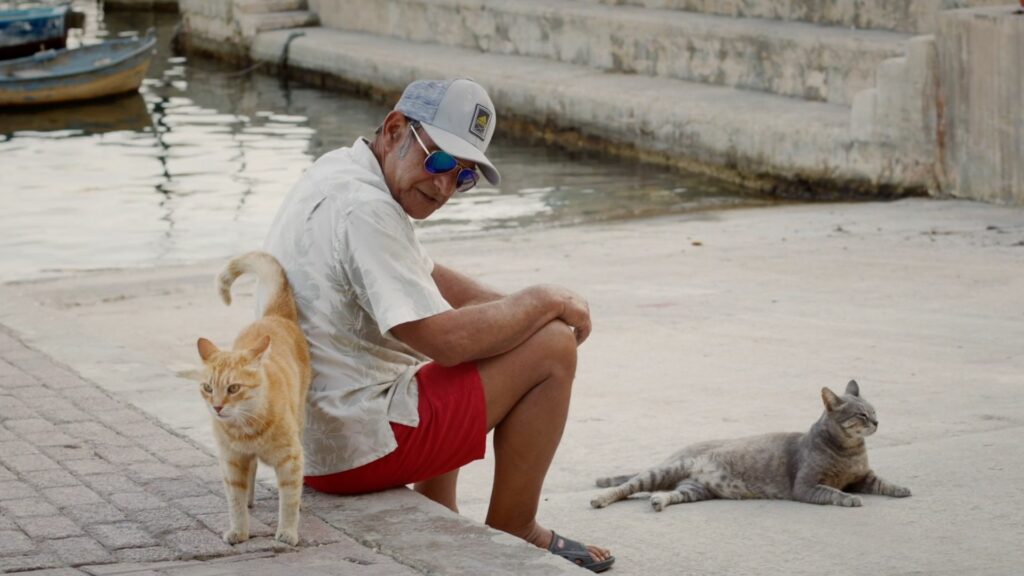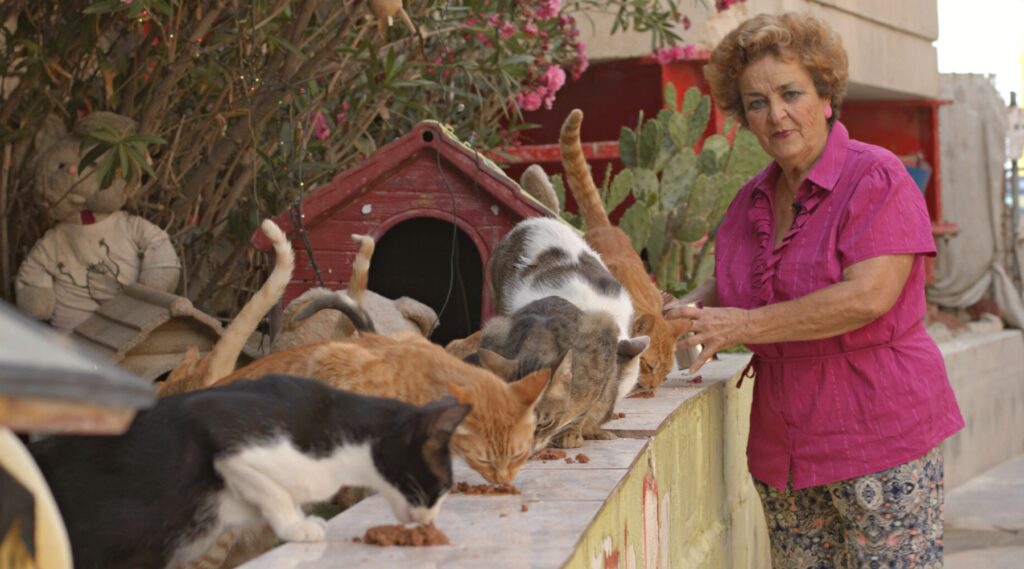There are over 500,000 people living in Malta, and over 100,000 cats. It is one of the most densely populated places in the world for both people and kitties. Director Sarah Jayne, who lived in Malta for four years and has Maltese heritage, shines a spotlight on Malta’s stray cats to uncover the significance they hold for the locals, illuminating the benefits they bring to all aspects of people’s lives from health and wellbeing to tourism and the arts. Cats of Malta a bright, loving depiction of a place inseparable from its feline residents that by the end may somewhat frustrate you with its apparent simplicity, but you would need a heart of stone to not be entranced by a film that captures cats at their finest.

Jayne’s conversations with her interviewees, through both their actions and their words, make crystal clear how important cats are to the way of life for people from all kinds of backgrounds. From artists to retirees, cats hold a special place – “they give you life” as one of them blissfully puts it. Repeated close up shots of the kitties invite you to see them as the locals see them; as closely knit companions with their own distinctive personalities. Jayne often lingers on these shots, allowing you to embrace the unmistakable beauty and grace of the creatures and giving each story a more tangible significance. Not all the anecdotes are easy to hear, but to see so many people dedicated to animals like this does wonders to affirm your hope in humanity.
Cats of Malta is a short feature documentary, not even clocking an hour in length. Perhaps related to this is that Jayne’s film struggles with a lack of introspection and detail. There is nothing, for example, about why Malta has such a high cat population in the first place. Jayne also states her personal stake in the film, introducing herself early on and acting as the narrator, yet her personal connection to either the cats or to Malta is scarcely revisited. Cats of Malta manages to sweep you up in the adorable fluffiness for you to care too much, but even so it feels like there is a lot more that could have been said.
Jayne never really gives the impression of trying to push the film in a profound direction, nor does she seem interested in uncovering anything particularly revelatory. But what Cats of Malta does have on its side is a lovingly captured, apparently endemic bond between cats and humans which every now and then can make your heart sing. Learning about each individual kittie’s personality and history is a joyful experience, and Cats of Malta blends these adoring depictions with serious discussions about animal provisions and welfare. Jayne’s film does not wrap itself up in the sass and cuteness of the cats so much that it is blind to the consequences of stray living that the animals experience on a daily basis. This grounded perspective helps to make Cats of Malta feel like more than just a pretty picture reel, although it is most certainly that too.

Cats of Malta lacks the depth and acknowledgement of subjectivity that would make for a truly outstanding documentary, but it is still a pleasant and informative watch. It will find a place as guaranteed viewing for cat fans everywhere. There is the very real chance that younger viewers could feel inspired themselves to bond more meaningfully with animals and to do what they can to make their lives better. This is almost certainly the highest praise anybody could have for Jayne’s portrait of the Mediterranean’s very own cat haven.
Cats of Malta is released on digital platforms on 3rd October.
